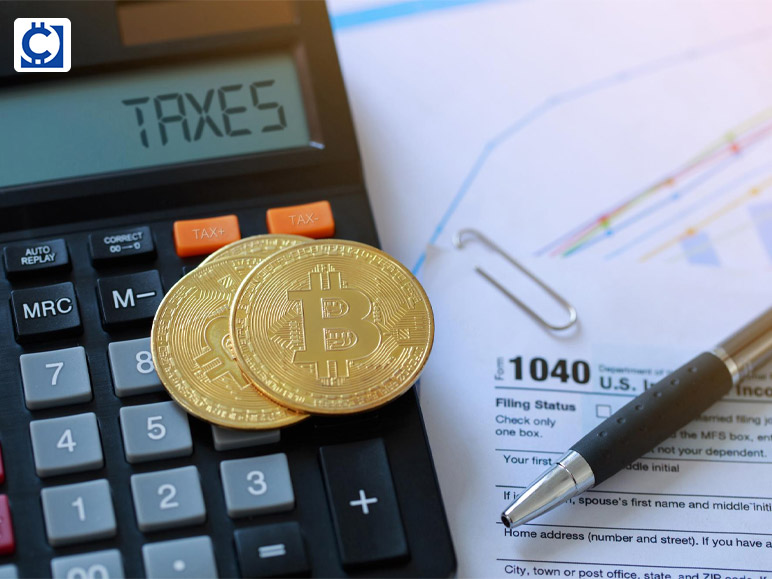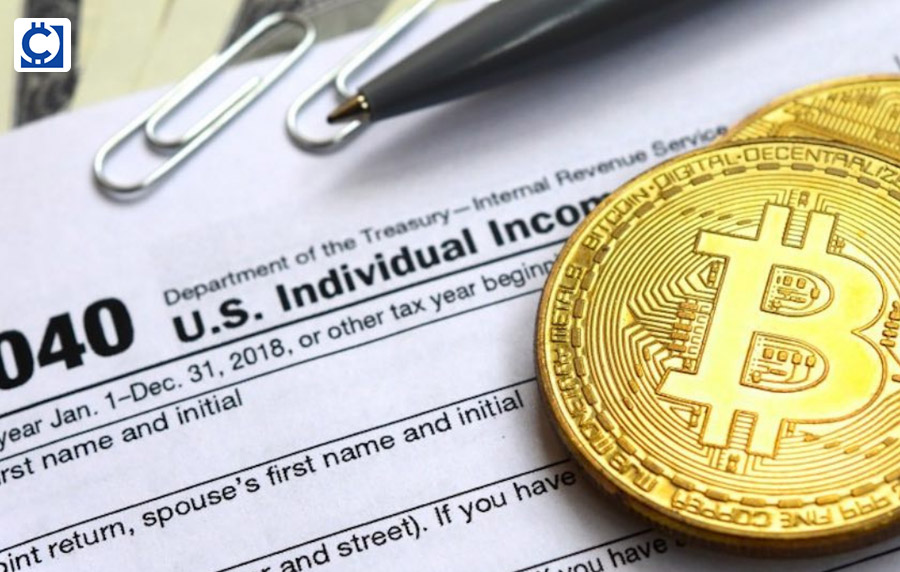In the constantly evolving world of finance, cryptocurrencies have arisen as a groundbreaking innovation, promising to reform the way we handle money and transactions. Bitcoin, Ethereum, and a large number of other cryptocurrencies have become household names, drawing individuals and investors with the commitment to decentralized, anonymous transactions. So what happens if you don’t report cryptocurrency on taxes?
However, with great power comes great obligation, and one aspect often disregarded is the obligation to report cryptocurrency on taxes. Failing to do so can lead to an intricate web of legal, financial, and personal consequences.
What Happens If You Forget To Report Crypto?
In this article, we’ll dig into the intricacies of what happens if you don’t report cryptocurrency on taxes and why it’s crucial to stay compliant.
The Legal Landscape

Cryptocurrencies may be digital, yet the taxman anticipates his cut. The Internal Revenue Service (IRS) in the US and similar agencies worldwide have perceived the importance of taxing cryptocurrency transactions. They have created rules to guarantee that individuals and businesses report these transactions accurately.
A typical misinterpretation is that cryptocurrencies offer total anonymity. While they give a certain degree of privacy, the blockchain technology they’re based on maintains an immutable ledger of all transactions also. The IRS, with the assistance of blockchain analysis tools, can trace cryptocurrency developments, making it challenging to conceal unreported income.
Potential Consequences

Failing to report cryptocurrency on your tax returns can bring about weighty fines. The IRS sees unreported cryptocurrency as a form of tax evasion, and penalties can incorporate substantial monetary sanctions. These fines can escalate, and premiums may accrue, making the financial weight much more substantial after some time.
Failure to report cryptocurrency can bring about legal action. Tax evasion is a wrongdoing in many purviews and can lead to criminal charges, including fines and even imprisonment. The seriousness of these consequences relies upon the degree of rebelliousness and the local tax laws.
Thinking of what happens if you don’t report cryptocurrency on taxes? Avoiding taxation on cryptocurrency transactions can put you at a higher risk of being audited. The IRS and other tax agencies often examine tax returns with cryptocurrency transactions, which can lead to a tedious and costly audit process.
Repercussions for Your Future

The consequences of not reporting cryptocurrency on your taxes stretch out past immediate financial penalties. It can negatively impact your credit score and financial health. Tax debts can lead to liens, which can affect your ability to get loans, mortgages, and credit cards.
For entrepreneurs and businesses, failing to report cryptocurrency transactions can impede their growth. Tax issues can make it challenging to get financing, attract investors, or maintain a positive reputation in the business world.
Global Reach of Tax Agencies

Cryptocurrencies operate on a global scale, and tax agencies worldwide have been collaborating to track unreported transactions. International agreements and information sharing have made it increasingly difficult to conceal unreported income in the digital age.
In outrageous cases, individuals who evade cryptocurrency taxes and escape to other nations may wind up facing extradition demands. This legal entanglement can lead to international legal complications and conceivable deportation.
Voluntary Disclosure and Amnesty

Perceiving the intricacy of cryptocurrency taxation, some tax agencies have presented voluntary disclosure programs. These programs allow resistant taxpayers to rectify their situation by reporting their cryptocurrency property and transactions without facing criminal charges.
Voluntary disclosure programs often accompany reduced penalties, giving a forgiving path to those able to confess all about their unreported cryptocurrency income. Using such programs can assist individuals and businesses in avoiding the most serious consequences.
The Importance of Accurate Record-Keeping

Accurate record-keeping is crucial while dealing with cryptocurrencies. The blockchain may be transparent, yet keeping a personal record of your transactions is equally important. This not only assists you with reporting your cryptocurrency on taxes but also gives a clear outline of your financial activities.
One significant challenge in cryptocurrency taxation is choosing the cost basis of your assets. The cost basis is essential for calculating capital gains and losses. Tracking when and at what cost you obtained your cryptocurrencies can save you from overpaying taxes on gains.
Tax-Compliant Tools and Services

Several software deals have been made to make it easier to report cryptocurrency on taxes. The way that these tools can easily screen and work out your cryptocurrency transactions. This makes it easier to report. Get an idea of what happens if you don’t report cryptocurrency on taxes.
For convoluted or huge-scale cryptocurrency actions, it’s ideal to converse with a tax master who has insight into cryptocurrencies. They can assist you with sorting out the confused tax decisions. And ensure that the information you give them is correct.
Regulatory Changes and Trends for the Future

The standards that administer cryptocurrencies are as yet changing. The crypto market is constantly changing, so tax agencies are constantly working on their guidelines. For safety, being familiar with changes to regulations is important.
Cryptocurrency is becoming more popular in many places around the world. Nations may cooperate to think of unified coin taxation so everybody has to observe the same tax reporting guidelines. It is vital to stay aware of these changes, especially if you do crypto transactions across borders.
Conclusion

In the high-speed universe of cryptocurrencies, overlooking the legal commitments that go with these computerized resources is simple. Numerous legal, financial, and profound repercussions go far past financial fines for neglecting to report crypto money on taxes. The primary thing to detract from this is that dependability is fundamental.
Tax agencies all around the world are trying to ensure that people in the cryptocurrency circle comply with the rules. And individuals who don’t will confront genuine and serious effects. So hope you get the idea of what happens if you don’t report cryptocurrency on taxes.
Additional:
- How To Buy Pulsex Global?
- How Is A Transaction Verified On A Cryptocurrency Network?
- G20 Moves Forward With An International Crypto Framework


